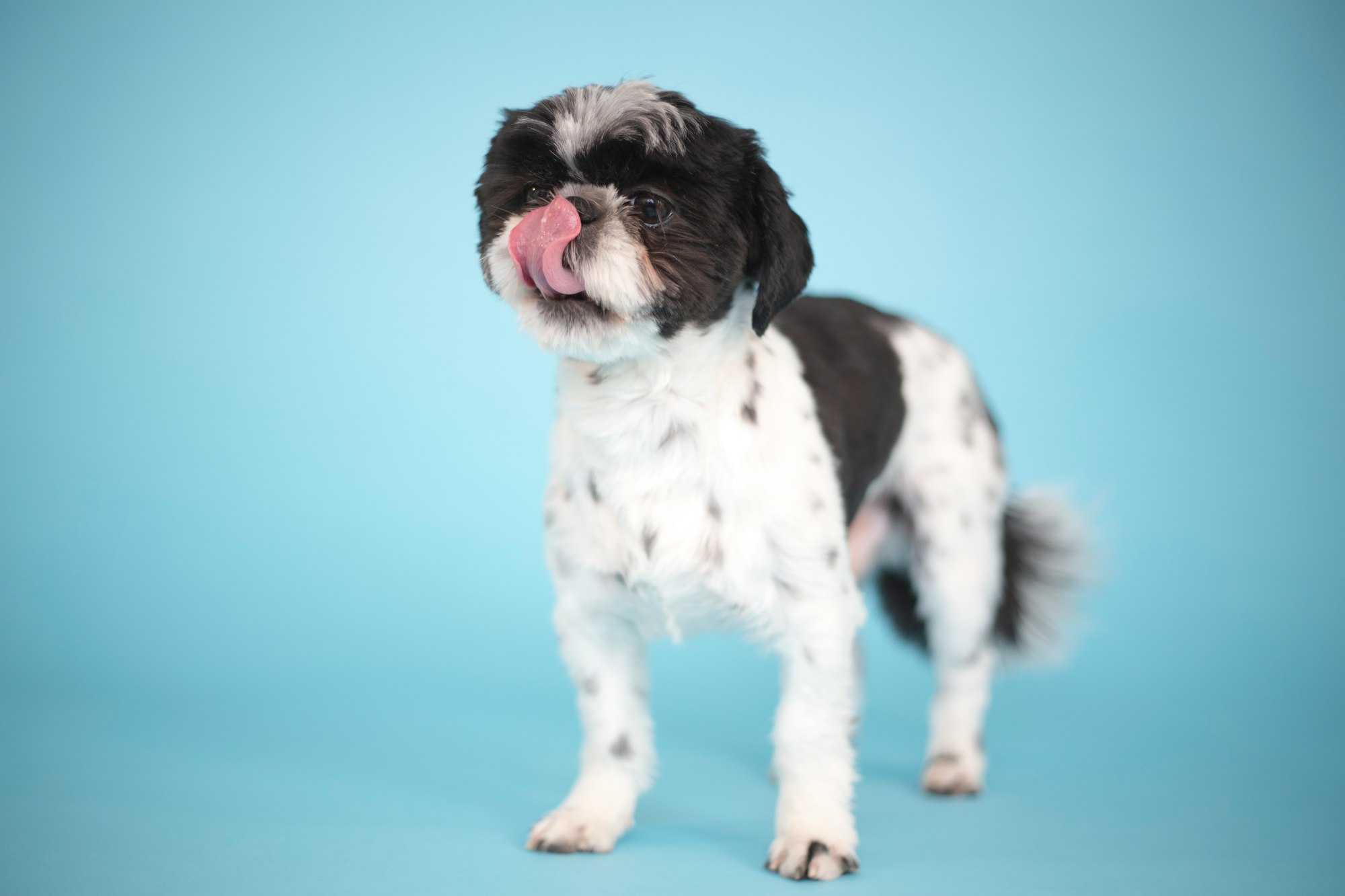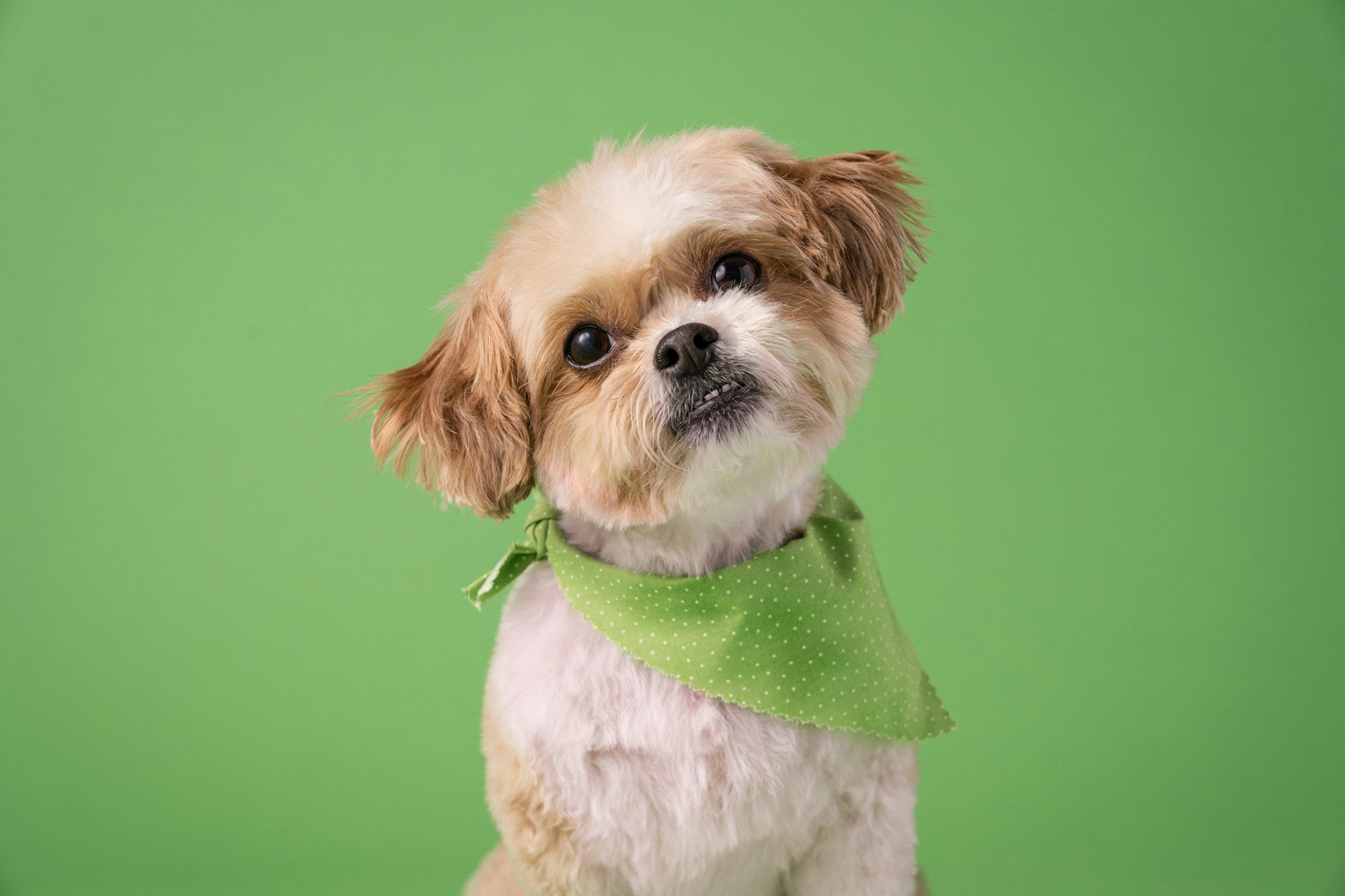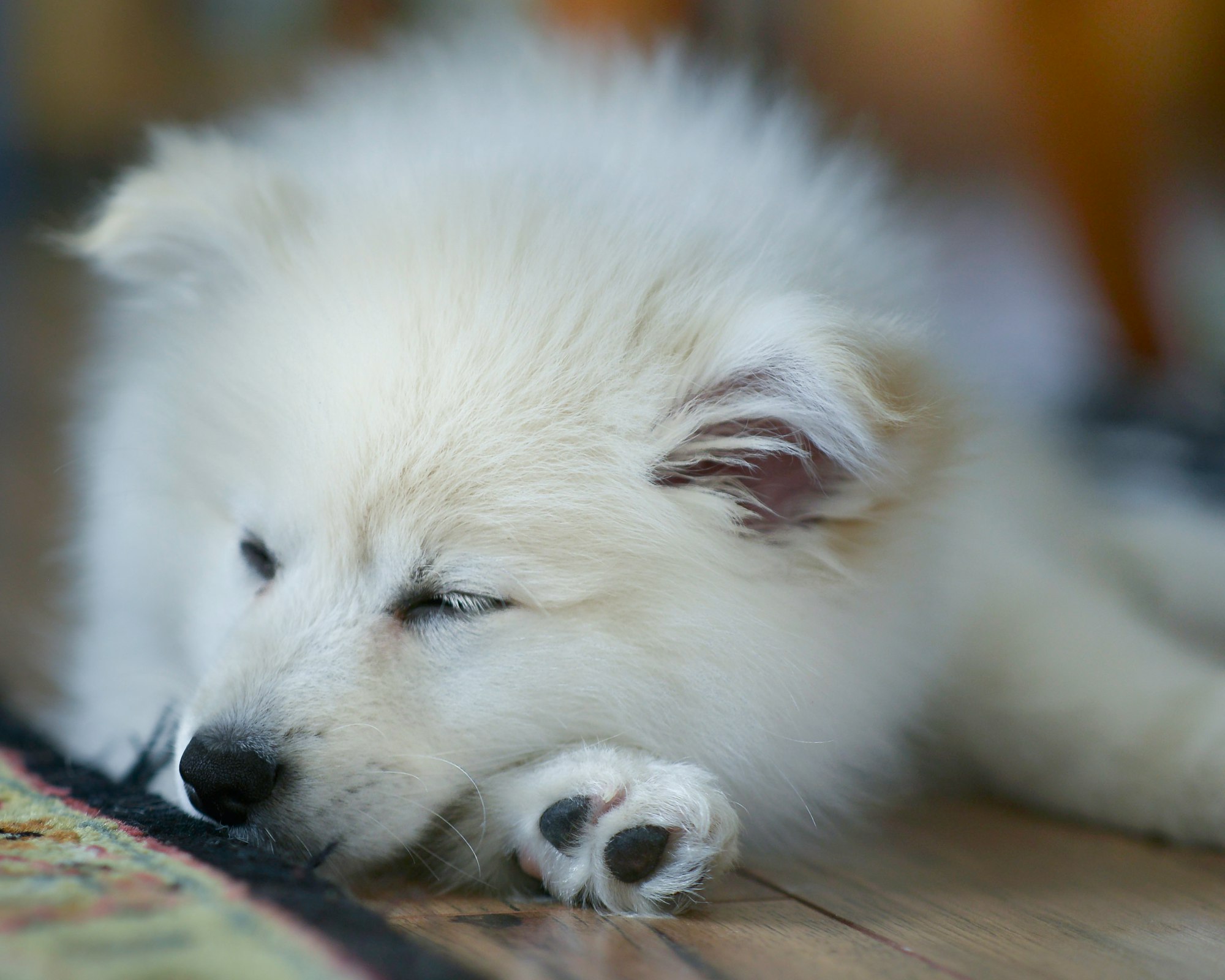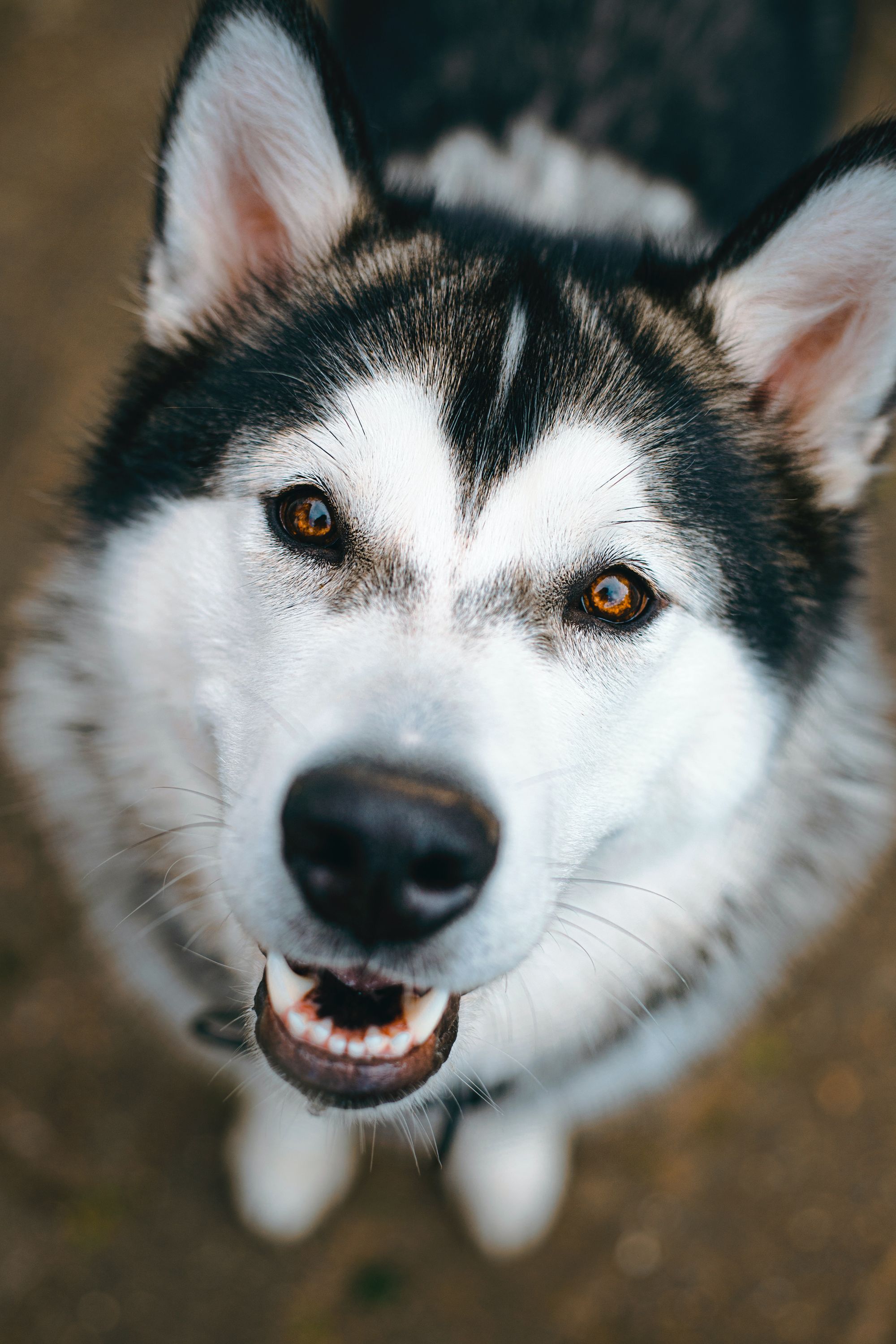Bringing a new furry friend into your home is an exciting and heartwarming experience. Shih Tzu puppies are particularly popular due to their adorable appearance and friendly nature. If you're considering adopting a Shih Tzu puppy, this guide will provide you with all the information you need to know about their care, training, and the joys of having them as a part of your family.

Understanding the Shih Tzu Breed
Origins and History
The Shih Tzu breed has a rich history that traces back to ancient China, where they were highly valued as royal companions. Their name translates to "lion dog," reflecting their lion-like appearance and regal aura.
Characteristics and Appearance
The Shih Tzu breed is known for its distinctive and charming appearance. Understanding their physical characteristics is essential for identifying and appreciating these adorable dogs.
1. Overview of Characteristics
- Size:
- Shih Tzus are small dogs with a sturdy build.
- They typically weigh between 9 to 16 pounds (4 to 7 kilograms).
- Coat:
- Shih Tzus has a luxurious double coat that is long, dense, and flowing.
- Their coat comes in a variety of dog coat colors and patterns, including gold, black, white, black and white, and more.
- Face and Expression:
- Their distinctive pushed-in face and large, round eyes give them an endearing expression.
- The nose is short and broad, and the ears are covered with long fur.
2. Coat Care and Grooming
- Maintenance:
- The long coat requires regular grooming to prevent matting and tangling.
- Brushing:
- Brush your Shih Tzu coat several times a week to keep it healthy and free from knots.
- Grooming Sessions:
- Regular professional grooming is necessary to maintain their coat's appearance.
3. Unique Features
- Tail:
- Shih Tzus have a plumed tail that rests over their back.
- Lion-Like Appearance:
- Their name translates to "lion dog" due to their resemblance to traditional Chinese lion sculptures.
- Colors and Markings:
- Shih Tzus can have a range of coat colors, including solids, combinations, and even rare variations.
4. Facial Expressions
- Eyes:
- Shih Tzus has large, round, and expressive eyes that convey warmth and charm.
- Nose and Muzzle:
- The short muzzle and nose give them a cute and somewhat comical appearance.
- Ear Furnishings:
- Long fur covers their ears, adding to their adorable and distinctive look.
5. Overall Personality
- Friendly and Affectionate:
- Shih Tzus are known for their friendly and affectionate nature.
- Playful and Lively:
- Despite their small size, they have a lively and playful disposition.
- Adaptable:
- Shih Tzus can thrive in various living environments, making them well-suited for different households.
Weight and Height of Shih Tzu: Step-by-Step Guide
Understanding the weight and height of a Shih Tzu is essential for their overall health and well-being. These measurements can vary based on factors such as genetics, age, and individual differences.

1. Average Weight and Height
- Adult Weight:
- On average, adult Shih Tzus weigh between 9 to 16 pounds (4 to 7 kilograms).
- However, some Shih Tzus may be slightly smaller or larger.
- Adult Height:
- At the shoulder, adult Shih Tzus typically measures about 8 to 11 inches (20 to 28 centimeters).
2. Growth Phases
- Puppy Weight:
- Shih Tzu puppies are born small, usually weighing around 2.5 to 4.5 ounces (71 to 128 grams).
- Puppy Height:
- Newborn Shih Tzu puppies are about 2 to 3 inches (5 to 8 centimeters) tall.
- Growth Rate:
- Shih Tzu puppies experience rapid growth in their first few months, with significant weight and height increases.
3. Factors Affecting Size
- Genetics:
- The size of a Shih Tzu is influenced by the genetics inherited from their parents.
- Gender:
- Male Shih Tzus may be slightly larger than females.
- Nutrition and Health:
- Proper nutrition and healthcare contribute to healthy growth and development.
4. Monitoring Size
- Regular Check-ups:
- Routine visits to the veterinarian help monitor a Shih Tzu's growth and ensure they are on track.
- Healthy Lifestyle:
- A balanced diet and regular exercise promote a healthy weight and overall well-being.
Understanding the average weight and height of a Shih Tzu is crucial for providing optimal care and ensuring their quality of life. By monitoring their growth and making informed decisions, you can contribute to the health and happiness of your furry companion.
Temperament and Personality
Known for their affectionate and friendly nature, Shih Tzus thrives on human companionship. They are great with families, singles, and seniors alike, and their adaptable demeanor makes them perfect for various living situations.
Preparing Your Home for a Shih Tzu Puppy
Puppy-Proofing Your Space
Just like babies, puppies are naturally curious and prone to exploring with their mouths. Ensure your home is safe by securing any hazardous items out of their reach.
Creating a Comfortable Sleeping Area
Designate a cozy spot for your Shih Tzu puppy to sleep. Providing a soft bed and a few comforting toys can help them settle in.
Essential Supplies You'll Need
Gather all the necessities, including food and water bowls, a leash and GPS dog collar, grooming tools, and of course, plenty of puppy-friendly toys.
Feeding Your Shih Tzu Puppy
Choosing the Right Puppy Food
Opt for high-quality, age-appropriate puppy food that supports your Shih Tzu's growth and overall health.
Feeding Schedule and Portion Control
Establish a consistent feeding schedule to help with potty training. Follow the recommended portion sizes to avoid overfeeding.
Healthy Treat Options
Treats can be used for training and bonding, but choose healthy options that won't contribute to weight gain.
Health and Grooming
Regular Grooming Routine: Shih Tzus' long coats require regular brushing to prevent matting and tangling. Additionally, routine baths and nail trims are essential for their hygiene.
Common Health Issues: Keep an eye out for issues like dental problems, respiratory concerns, and joint conditions that are common in the breed.
Veterinary Care and Vaccinations: Regular vet visits ensure your puppy's health is in check. Stay up-to-date on vaccinations to prevent various diseases.
Training and Socialization
Basic Commands and Obedience Training
Teach your Shih Tzu puppy basic commands like sit, stay, and come. Obedience training is a great way to establish a strong bond.
House Training Tips
Patience and positive reinforcement are key when house-training your puppy. Consistency and routine will lead to success.
Exposing Your Puppy to Different Environments
Socialize your puppy by introducing them to various people, places, and experiences. This helps prevent fearfulness and aggression.
Bonding and Playtime
Importance of Play for Shih Tzu Puppies: Playtime isn't just about fun—it's essential for your puppy's physical and mental development.
Building a Strong Bond through Interaction: Engage in interactive activities like fetch, hide-and-seek, and puzzle toys to strengthen your bond.
Incorporating Mental Stimulation: Stimulate your puppy's mind with activities that challenge their problem-solving skills, such as treat puzzles.
Shih Tzu Puppy-Proof Activities
Safe Playtime Activities: Engage in activities that are safe for your puppy's size and energy level, like gentle tug-of-war or supervised playdates.
Interactive Toys for Mental Engagement: Interactive dog toys that dispense treats or make noise keep your puppy mentally engaged and entertained.
Indoor and Outdoor Exercise Ideas: From indoor games like "Find the Treat" to outdoor adventures in a secure area, keep your Shih Tzu active and happy.
Traveling with Your Shih Tzu
Travel Safety Measures: Use a secure crate or harness to keep your puppy safe during car rides.
Introducing Your Puppy to Car Rides: Gradually introduce your puppy to car rides with short trips and positive reinforcement.
Finding Pet-Friendly Destinations: Research pet-friendly hotels, parks, and attractions if you plan to travel with your Shih Tzu.
Overcoming Challenges
Dealing with Separation Anxiety
Gradually get your puppy used to alone time to prevent separation anxiety. Leave them with toys and comforts.
Addressing Barking Behavior
Train your Shih Tzu to understand when barking is appropriate and when it's time to be quiet.
Navigating Teething and Chewing
Provide appropriate chew toys to soothe your puppy's teething discomfort and prevent them from chewing on furniture.
Average Price Range
The cost of a Shih Tzu puppy can vary significantly, ranging from approximately $500 to $3,000 or more. This broad range reflects the diverse factors that contribute to pricing.

- Low-End Range: Shih Tzu puppies at the lower end of the price spectrum may come from less established breeders or lack certain health clearances. Exercise caution when encountering prices that seem unusually low, as they may indicate subpar breeding practices.
- Mid-Range: Puppies falling within the mid-range typically come from reputable breeders who prioritize health, socialization, and responsible breeding practices. This range often includes puppies with standard coat colors and markings.
- High-End Range: Shih Tzus at the higher end of the price scale may possess exceptional pedigrees, rare coat colors, and thorough health examinations. They are more likely to come from breeders who invest extensively in their breeding program.
Factors Influencing Shih Tzu Puppy Prices
1. Breeder Reputation and Quality: Reputable breeders who prioritize the health and well-being of their puppies typically charge higher prices. They invest in proper care, socialization, and health checks, which translates into a higher initial cost.
2. Pedigree and Lineage: Shih Tzus with impressive pedigrees and champion bloodlines often command higher prices. These dogs are more likely to possess desirable traits and conform to breed standards.
3. Coat Color and Markings: Certain coat colors and unique markings are in high demand, leading to higher prices. Rare color variations or distinctive patterns can significantly impact the cost of a Shih Tzu puppy.
4. Health Clearances and Vet Care: Puppies with up-to-date vaccinations, deworming, and health clearances from a veterinarian may have a higher initial price due to the added medical expenses incurred by the breeder.
5. Age and Availability: Younger Shih Tzu puppies are generally priced higher than older ones. Additionally, the availability of puppies within a specific region or timeframe can influence their cost.
6. Geographic Location: Prices can vary based on your geographical location. Urban areas and regions with high demand for certain breeds often have higher puppy prices.
Additional Costs to Consider
Beyond the initial purchase price, it's important to budget for ongoing expenses associated with Shih Tzu ownership:
- Veterinary Care: Regular check-ups, vaccinations, and potential medical emergencies.
- Grooming: Shih Tzus requires regular grooming, which includes haircuts, brushing, and maintenance of their luxurious coats.
- Food and Supplies: Quality dog food, treats, toys, bedding, and other necessities.
- Training and Socialization: Puppy training classes, obedience training, and socialization activities.
- Health Insurance: Consider pet insurance to help manage unexpected veterinary costs.
- Licensing and Microchipping: Ensuring your Shih Tzu is properly identified and registered.
While the initial cost of bringing home a Shih Tzu puppy varies based on several factors, it's important to remember that the love, companionship, and joy they bring into your life are truly priceless. By understanding the factors that influence their pricing and budgeting for ongoing expenses, you can confidently embark on the exciting journey of becoming a proud Shih Tzu owner.
Shih Tzu Puppy Average Price: What to Expect
Bringing home a Shih Tzu puppy is an exciting decision, but it's essential to be prepared for the associated costs. The price of a Shih Tzu puppy can vary based on several factors.
1. Factors Influencing Price
- Breeder Reputation:
- Reputable breeders who prioritize health and well-being may charge higher prices.
- Pedigree and Lineage:
- Puppies with champion bloodlines or impressive pedigrees may be more expensive.
- Coat Color and Markings:
- Certain coat colors or unique markings may contribute to a higher price.
- Health Clearances:
- Puppies with up-to-date vaccinations and health check-ups may have a higher initial cost.
2. Average Price Range
- Broad Range:
- The cost of a Shih Tzu puppy can range from approximately $500 to $3,000 or more.
- Low-End Range:
- Lower-priced puppies may come from less established breeders or lack certain health clearances.
- Mid-Range:
- Mid-priced puppies are often from reputable breeders who prioritize health and socialization.
- High-End Range:
- Higher-priced puppies may have exceptional pedigrees, rare colors, and thorough health examinations.
3. Additional Costs
- Veterinary Care:
- Budget for regular check-ups, vaccinations, and potential medical emergencies.
- Grooming and Supplies:
- Include costs for grooming, food, toys, and other necessities.
- Training and Well-being:
- Consider expenses for training classes, wellness, and mental stimulation.
4. Responsible Ownership
- Budgeting:
- Plan ahead to ensure you can provide proper care throughout your Shih Tzu's life.
- Research Breeders:
- Choose a breeder who prioritizes the health and well-being of their puppies.
Conclusion
Bringing home a Shih Tzu puppy is a delightful adventure that comes with its challenges and countless joys. With proper care, training, and a lot of love, your Shih Tzu will grow into a loyal and loving companion that brings happiness to your life.
FAQs about Shih Tzu Puppies
- Q: How often should I groom my Shih Tzu puppy?
- A: Regular grooming is essential; aim for at least once every two to three weeks.
- Q: Can Shih Tzus be left alone for long hours?
- A: Shih Tzus prefers human company, so it's best to avoid leaving them alone for extended periods.
- Q: Is a Shih Tzu hypoallergenic?
- A: While no dog is entirely hypoallergenic, Shih Tzus is known for producing fewer allergens than some other breeds.
- Q: How can I prevent matting in my Shih Tzu's coat?
- A: Regular brushing and professional grooming help prevent matting and keep their coat healthy.
- Q: What is the average lifespan of a Shih Tzu?
- A: Shih Tzus typically live around 10 to 18 years, depending on their overall health and care.

